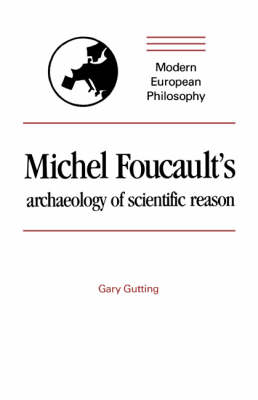Modern European Philosophy
2 total works
This book is an important introduction to the critical interpretation of the work of the major French thinker Michel Foucault. Through comprehensive and detailed analyses of such important texts as The History of Madness in the Age of Reason, The Birth of the Clinic, The Order of Things, and The Archaeology of Knowledge, Professor Gutting provides a lucid exposition of Foucault's 'archaeological' approach to the history of thought - a method for uncovering the 'unconscious' structures that set boundaries on the thinking of a given epoch. The book also casts Foucault in a new light, relating his work to two major but neglected influences: Gaston Bachelard's philosophy of science and Georges Canguilhem's history of science. This perspective yields a new and valuable understanding of science, balancing and complementing the more common view that he was primarily a social critic and theorist. An excellent guide for those first approaching Foucault's work, the book will also be a challenging interpretation and evaluation for those already familiar with his writings.
In this book Gary Gutting offers a powerful account of the nature of human reason in modern times. The fundamental question addressed by the book is what authority human reason can still claim once it is acknowledged that our fundamental metaphysical and religious pictures of the world no longer command allegiance. If ethics and science remain sources of authority what is the basis of that authority? Gutting develops answers to these questions through critical analysis of the work of three dominant philosophical voices in our time: Richard Rorty, Alasdair MacIntyre, and Charles Taylor. His own position is defined as 'pragmatic liberalism'.

